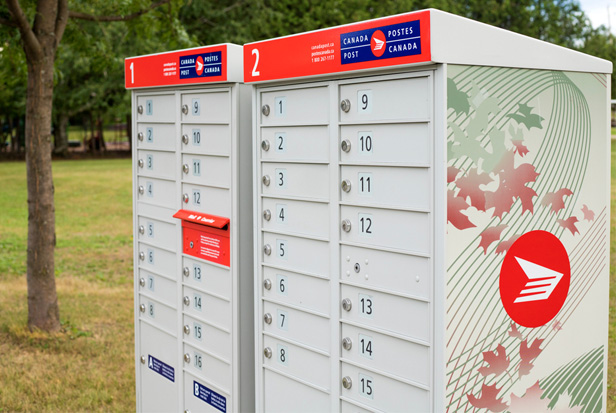News CANADIAN NEWS September 18, 2025
Canadian Postal Workers Halt Delivery of Marketing Mail Amid Ongoing Contract Dispute
The latest escalation in the ongoing labour negotiations between Canada Post and the CUPW could lead to a lockout or full work stoppage.
Key Takeaways
• After rejecting Canada Post’s most recent contract offer, the Canadian Union of Postal Workers is now refusing to deliver direct marketing mail, including flyers, catalogues and community newspapers.
• Canada Post says it needs operational flexibility such as part-time staffing and dynamic delivery routes to stay competitive with private carriers like UPS and FedEx.
• Due to ongoing labor disruptions and service uncertainty, many Canadian businesses have already transitioned to digital marketing and alternative delivery services.
After nearly two years of contract wrangling, the gulf between Canada Post and the Canadian Union of Postal Workers (CUPW) remains wide. And now, CUPW has upped the ante.
While employees have remained on the job as representatives continue to try to reach a permanent agreement, the CUPW has refused to deliver marketing mail since Sept. 12. And now, Canada Post has said it will present a new contract offer in a week and has asked CUPW to resume delivery of all mail pieces in the meantime. CUPW has refused.
Before Sept. 12, the CUPW had refused to work overtime while negotiations continue; that partial strike action has been replaced with a refusal to deliver direct mail flyers and catalogues, what Canada Post calls its “Neighbourhood Mail” business, which many businesses and charities rely on for marketing their products and services. That division also includes many small community newspapers that serve residents in rural areas.
“We are disappointed in CUPW’s decision, which we only learned about through their news conference,” said Canada Post in a statement. “This decision will impact the thousands of Canadian businesses that reach their customers with information and offers through the mail. It will also impact CUPW-represented employees who are paid to deliver flyers on top of their wages.”
CUPW members rejected what Canada Post called its final offer late last month.
“Canada Post has had our global offers since August 20, and instead of responding, they issued an ultimatum: Change our offers or they would walk away, with no commitment to return,” said Jan Simpson, national president of the CUPW, in a statement. “We’ve been left with no choice but to change our strike activity with the hope that Canada Post finally takes us seriously and returns to the bargaining table.”
Canada Post has accused the CUPW of making more extreme demands that would add to out-of-control costs; the postal service lost nearly $295 million USD year over year in Q2 of this year, the biggest quarterly loss in the company’s history, and parcel volume fell 36.5% in the same timeframe.
Many Canadians have eschewed Canada Post when possible, due to ongoing service uncertainty, in favour of other delivery services like UPS and FedEx. That drop in parcel volume has resulted in a lack of demand for overtime work, which has led to the CUPW changing its partial strike tactics.
Canada Post says it needs the ability to implement part-time flexible staffing, balanced loads across neighborhoods and dynamic mail routes to compete with other parcel delivery services. CUPW has stayed firm on its demands for higher pay, increased pension and benefit eligibility, better working conditions and weekend delivery by a part-time workforce.
This latest move by the CUPW could be the start of escalating strike actions, Alison Layfield, vice president of product development at shipping solutions firm ePost Global, told Supply Chain Dive.
“It may push [Canada Post] to take legal action due to the ‘refusal to work,’ and force Canada Post to issue a lockout,” she said, “or maybe the union decides to push a little harder yet and begin rotating strikes or a full work stoppage.”
Canadians in promo have largely hedged their bets and moved on to other delivery methods. Late last year, after mail delivery had stopped for weeks ahead of the busy Q4 season, distributors created contingency plans and found alternative services, which has largely become a permanent shift away from the beleaguered postal service.
Christine Courtemanche, vice president of Linéaire Infographie inc. (asi/253727) in Laval, QC, had all clients move to e-transfer for payment last year, as opposed to mailed cheques. She says that she’s not concerned about the current marketing mail ban.
“We’re expecting no impact at all,” she says. “All our marketing is digital.”

